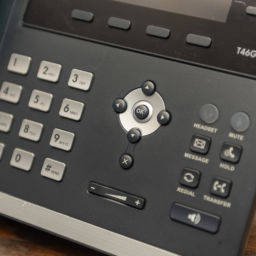Many in the modern workforce are looking for the ability to work remotely. In fact, 80% of employees want to work from home at least some of the time. They cite fewer distractions, more flexibility, and higher productivity as some of their personal benefits.
The freedom to work remotely can offer great benefits for both employees and companies, but without the right technology setup, working from home could be messy and unproductive. Here are some tech tools you need for effective and efficient remote work.
Video Conferencing
If you’ve ever asked a question on a conference call and received deafening silence, then you understand the frustration that can come with voice-only communication. People innately read facial expressions and other visual cues for information that you can’t get through text-based or even voice-only communication. This is especially true for any type of impactful conversation like an annual review, giving constructive feedback, etc. It’s always best to have those types of conversations “face-to-face,” if you will.
It’s one thing to have a video conference and another to conduct it securely. First things first, whatever video conferencing system you use, make sure it’s up-to-date. Legacy systems could have outdated security measures that can leave your sensitive data exposed. Similarly, always password-protect your conferencing groups. This includes any external communication to clients or leads, such as a public webinar. Do not post the meeting information online (ex. on social media) for anyone to see. Place it behind a form or send an email the day of with login instructions.
Hardware
First and foremost, make sure you have a secure internet connection. That means you can’t use your neighbor’s wifi just because they forgot to put a password on it, and you shouldn’t use any public wifi. You need to keep your company and client information as secure as possible, and using an open or public wifi connection is like alerting cybercriminals that it’s open season on your confidential data.
I don’t know why we have to keep saying this but do not connect to unsecured wifi! If you have to be at a hotel or coffee shop for a video call, accessing files, or anything else, use a secured connection or a VPN. Otherwise, you could undermine the security protocols you have in place in your own offices and on your own equipment.
There’s a couple of items that aren’t a necessity for working remotely, but they do make it more comfortable or even enjoyable. For example, having a second monitor while you’re working from home can help you increase productivity and keep you from squinting at your small laptop screen.
Cellular Internet Backup
It’s also a good idea to have a backup internet connection, so you don’t lose it when you need it most. Because that’s always when you lose internet connection: when you’re in a video conference call, on a tight deadline, or hosting a live webinar.
If one or more of your essential business elements requires an uninterrupted internet connection, you should consider cellular backup. For example, if your organization utilizes any sort of e-commerce, then a lack of internet could be devastating, leaving orders to pile up.
You can look at this type of backup internet as insurance. You hope you don’t have to use it, but if the need arises, you’re going to be glad you’ve got it.
If and when your hardlined internet connection fails, you can utilize your organization’s cellular carrier as a wireless backup. If you’ve ever used your phone as a hotspot, this type of wireless backup functions very similarly. The service provider can install a cellular wireless router with a SIM card so you can pull wifi from it. If a storm knocks out your power, you won’t lose an entire afternoon getting back up and running.
VoIP
VoIP stands for Voice over Internet Protocol. This term may sound complicated, but it simply refers to a phone service run through the Internet: you can make calls, receive messages, and generally enjoy all the benefits of a traditional phone plus some benefits only possible thanks to smart devices and better user experience design.
Unlike a traditional phone, you can access and share functionalities across different devices and instantly manage your team’s accessibility of features like video and conference calls. This also means you can answer work calls on your personal phone and aren’t tethered to the office. Learn more about the benefits of VoIP.
Check out our IT management checklist for remote work for even more elements you need to keep in mind. Remote work comes with plenty of benefits for the organization and its clients, as long as everyone is aligned on security measures, remote work policies, and best practices.
As you transition to remote work, contact us if you’re looking for help with setup.







